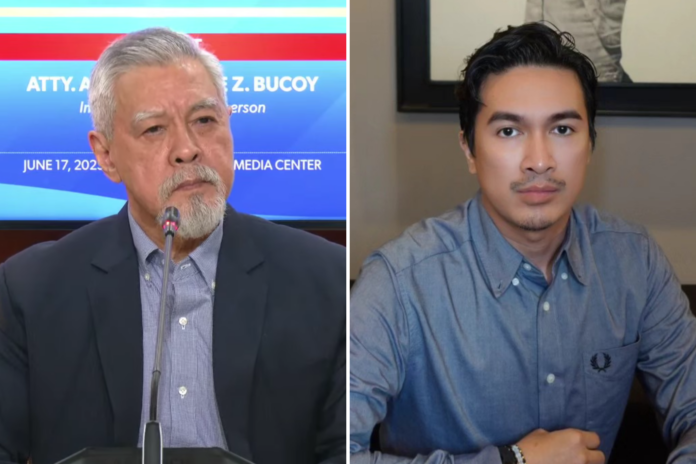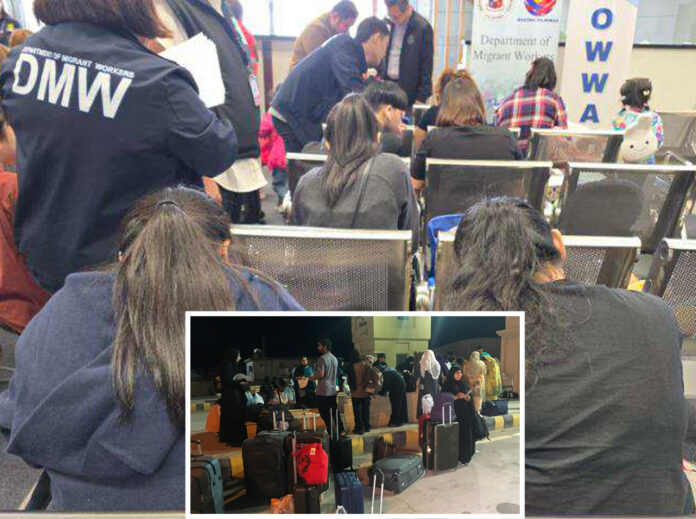The House of Representatives’ refusal to accept the document indicating the formal entry of Vice President Sara Duterte’s lawyers may delay the impeachment proceedings, the Senate impeachment court said yesterday.
Impeachment court spokesperson Reginald Tongol explained that for a court filing to be accepted by the impeachment court, it must first be ensured that the other party—in this case, the House of Representatives—has received a copy.
“That notation is very significant because the prosecution might say that they were not given a copy. So they need to note when they are filing the pleading that there was a refusal of receipt, and just hand over the copy to the person they found there so that the impeachment court can receive what was filed,” Tongol said in an interview with ABS-CBN..
“So this is significant because they might see another delay, as it is another issue that the prosecution will raise: ‘Oh, don’t accept that, impeachment court, because we didn’t receive it,’” he added. “The person receiving the item will, meanwhile, say, ‘Oh no, we sent it, but you refused to take it.’”
Last Monday, Tongol shared copies of the document indicating the formal entry of Duterte’s lawyers, which was submitted to the Senate impeachment court at 5:03 p.m.
The document showed that the House was listed on page 3 as having been furnished a copy at 3:42 p.m. the same day, but with a remark: “Tender copy refused to receive.”
Tongol also said “claims of foot-dragging are baseless, as actions speak louder than words. It is disrespectful for litigants to question the court with the end goal of merely discrediting it instead of doing their job to have their complaints ventilated in the proper forum.”.
He said the court had convened, adopted its rules and supplemental rules, and issued orders necessary to move the impeachment process forward.
Tongol added that summons were also issued to Vice President Sara Duterte, and the entry of appearance from the defense lawyers was received.
“If their goal is to speed things up, they should themselves comply with that goal by doing and filing what needs to be filed instead of spending their time attacking the court,” he said.
Tongol argued that any competent litigator knows how simple it is to file motions for clarification, manifestations, compliance, or formal entry of appearance. He questioned why seven days had passed since the court first convened without any such filings from the parties involved.
“If it already takes them a week to act on such simple and minor matters, what more when it comes to bigger filings or motions?” he posed.
Tongol maintained that the court remains committed to its constitutional duty and to ensuring due process.
“If they feel strongly about the actions of the court, then they should avail of their remedies in law and not air out grievances in the court of public opinion,” he concluded.
Meanwhile, impeachment spokesperson Antonio Audie Bucoy on Tuesday said he agrees with the assessment of former Supreme Court Chief Justice Reynato Puno that the Senate under Senate President Chiz Escudero may have committed grave abuse of discretion in handling the impeachment complaint against Vice President Duterte.
Bucoy was referring to the Senate’s decision to remand the Articles of Impeachment back to the House of Representatives, a move that has drawn criticism from constitutional experts and legal scholars.
“There is no word ‘remand’ in impeachment. Remand is not appropriate in impeachment. The remand is for ordinary cases in ordinary courts, but never in impeachment courts,” Bucoy said.
Bucoy’s statements lend further weight to the growing consensus among constitutional law experts that the actions of the Senate, presided over by Escudero, fall outside the bounds of what is constitutionally sound.
The acts of the Senate are now under scrutiny not just by the Philippine Constitution Association (Philconsa), which Bucoy chairs, but also by law deans, professors, and other constitutional experts.
Escudero had earlier downplayed the findings of Philconsa, citing Speaker Ferdinand Martin G. Romualdez’s role as the group’s president. Bucoy was quick to reject this line of reasoning.
“That’s not fair. Because you judge the position based on the merit of what was said,” Bucoy said.
He also clarified that Speaker Romualdez, despite his role as Philconsa president, does not influence the independent legal opinions of former Chief Justice Puno.
“In much the same way that Chief Justice Puno will not and cannot influence the mindset of the Speaker of the House.”
According to Bucoy, the positions being put forward by legal experts and organizations like Philconsa should be evaluated based on the substance of their arguments, not the personalities behind them.
“So my take is that the argument is based on the merit of the argument, not on the personality,” Bucoy said.








